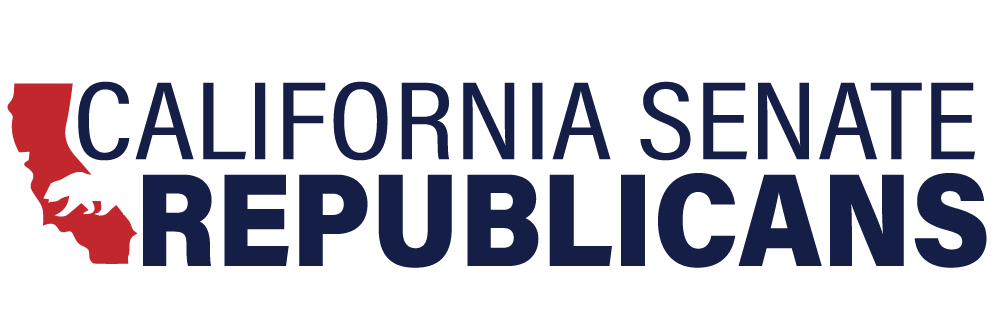Full Senate Budget Committee
Skinner (D-Berkeley) Chair, Niello (R-Fair Oaks) Vice Chair
Bandaging Hospitals’ Financial Wounds While Pressing for Better Solutions. The full Senate Budget Committee met Tuesday, May 2, to vote on several issues, including Assembly Bill 112 to help multiple hospitals avoid closure in the near future. Many California hospitals are struggling to keep their doors open, particularly in rural areas, in large part because the state Medi-Cal program pays only 74 cents on the dollar for services. Democrats have refused to increase Medi-Cal fee-for-service payment rates for years, even while they add more and more people to the program. Senate Republicans voted in favor of the bill in order to stave off near-term disaster for multiple hospitals, while also calling for a longer-term fix for the problem of severe underpayment by the state.
Subcommittee #1 (Education) Laird (D-Santa Cruz) Chair, Ochoa Bogh (R-Yucaipa), Min (D-Irvine) & Smallwood-Cuevas (D-Los Angeles)
Student Housing Should Remain a Priority. The subcommittee heard a description of proposals for universities and colleges that are included in the Senate Democrats’ budget plan. Rejecting Governor Newsom’s proposal to delay $250 million for college student housing projects is part of that plan. Senator Rosilicie Ochoa Bogh (R-Yucaipa) has consistently spoken in favor of ensuring students have access to affordable housing, and in opposition to the Governor’s proposed delay. An adequate supply of affordable student housing will ease the total costs of a college degree and take pressure off the broader housing market in communities around colleges and universities. Any overall budget agreement should prioritize this key element of college and housing affordability.
Subcommittee #2 (Resources, Environmental Protection, and Energy) Becker (D-Menlo Park) Chair, Dahle (R-Bieber), McGuire (D-Healdsburg)
Californians Pay More for Gas and Electricity Under Democrats’ Unrealistic Plans. State agencies serving under Governor Newsom keep ignoring reality in mandating energy transition deadlines, creating higher energy prices and lower reliability for the foreseeable future. The ideological race by state leaders to cut oil and gas production is faster than experts recommend – and quicker than alternative energy sources can fill the gap. According to the California Air Resources Board’s (CARB’s) own scoping plan, the transition to cleaner energy will take several decades. “Yet, data from CARB tells us that California is shutting down local oil production four times faster than state agencies estimate for the energy transition,” said Senator Brian Dahle (R-Bieber). “One example of that effort,” he continued, “is the recent decision by CARB to ‘phase out’ diesel trucks.” California lacks the infrastructure needed to power the state solely with alternative energies. “We have the capacity and technology to give Californians a much smoother path to carbon neutrality here,” he said, “so why can’t we just do that for ourselves?” The majority party’s refusal to answer that question will be a multibillion dollar issue for generations of Californians.
Subcommittee #3 (Health and Human Services) Menjivar (D-San Fernando Valley) Chair, Grove (R-Bakersfield), Eggman (D-Stockton), & Roth (D-Riverside)
Improving the Lives of Older Californians. Senate Republicans support budget enhancements that promote the independence and well-being of California’s older adults. The subcommittee heard a Department of Aging proposal that will use $3.2 million in federal funds to expand the locations where senior physical activity classes and senior nutrition education courses can be offered. The program provides guidance to older adults in making healthy food choices on a limited budget, increasing the consumption of a variety of fruits and vegetables, and choosing a physically active lifestyle. This funding will bring this program to veterans, health, and senior centers in eight additional counties. The subcommittee will vote on the proposal within a few weeks.
Subcommittee #4 (State Administration and General Government) Padilla (D-San Diego) Chair, Niello (R-Fair Oaks), & Caballero (D-Merced)
Cannabis Regulation Costing Taxpayers Millions. The subcommittee discussed a proposal to spend $4 million in cannabis license revenues on a new information technology unit in the Department of Cannabis Control (DCC). However, the DCC already outspends license revenues by more than $10 million annually. The fund that receives these revenues is on a trajectory to be insolvent within two to three years, and the Governor has offered no plan to address the imbalance. He would instead spend $30 million General Fund on DCC activities, shifting some of the burden of cannabis regulation from the industry to taxpayers. The voters were told in 2016 that revenues from legal cannabis would more than cover the costs of regulation, yet here we are. The subcommittee will vote on the proposal at a later hearing.
Subcommittee #5 (Corrections, Public Safety, Judiciary, Labor, and Transportation) Durazo (D-Los Angeles) Chair, Seyarto (R-Murrieta), & Newman (D-Fullerton)
Democrats Propose Unemployment Benefits Expansion Despite Massive Debt. The subcommittee discussed the Senate Democrats’ proposal to expand unemployment insurance to undocumented individuals at a cost in excess of $300 million annually. The proposal would fund these costs from general taxes, although unemployment benefits are normally paid by taxes on employers who hire the workers. The Employment Development Department (EDD), which paid out an estimated $31 billion in fraudulent unemployment claims during the pandemic, would administer the new program. The proposal ignores the challenges of verifying benefit eligibility for the new undocumented claimants, thus leaving the program open to more fraud and abuse. Additionally, California still owes the federal government nearly $19 billion for money borrowed to pay benefits during the pandemic. With a large overall budget deficit looming, it is not the right time to expand a program that is $19 billion in debt, susceptible to fraud, and managed by a struggling EDD.
